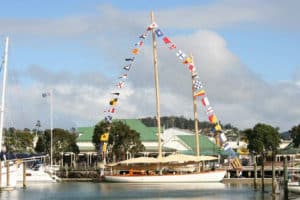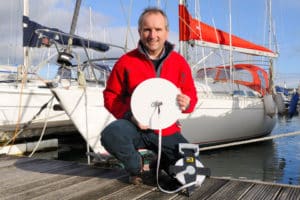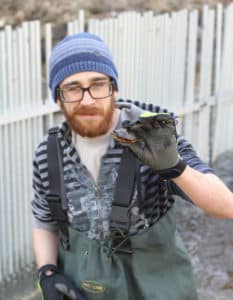Seasons and weather: Time your visit for the dry season from mid-December to mid-March, when temperatures are cooler, prevailing easterlies are stronger, and the mosquitoes are less voracious. Heralded by a southwest wind, cold fronts pass through about every week in winter. Rain typically precedes frontal passages, and winds intensify and clock around until settling in from the northeast. The strongest winds are typically north-northeast and are rarely greater than 22 knots.
Charts and guides: Five NOAA charts–numbers 11429, 11430, 11431, 11432, and 11433–cover the park area in great detail. Sailors on boats approaching from the north will also want numbers 11426 and 11427. From the Keys, use chart number 11451. We found digital charts from Garmin’s BlueChart series to be as accurate as any paper chart.
Special navigation hazards: Fish and crab traps cluster tightly just outside the park boundaries. Fast backcountry fishing boats zip around on weekends, so avoid anchoring midchannel on rivers, and always keep your boat lit. Unmarked shoals abound.
Tides: The Everglades National Park boating website (www.nps.gov/ever/visit/ boating.htm) provides a link to websites with tide data. Treat all times and heights with caution, as heavy rains and strong winds can have tremendous influence over the tides. We found published tidal data to be unreliable. Time your river entrances during slack tides if possible; the Barron River current is particularly swift.
Regulations: Many islands are off-limits, and outboards are prohibited on some lakes. Large stretches of water are no-wake zones. Details on these and other rules are available on the Everglades National Park boating website (listed above) or by calling visitor information (305-242-7700). If you plan to camp at the Wilderness Waterway sites, reserve a backcountry permit 24 hours before your trip by calling the Everglades National Park permit line (239-695-2945). You don’t need a backcountry permit to sleep on board.
Fishing: The Everglades are world famous for backcountry fishing, particularly for tarpon and snook. Fishing regulations (http://marinefisheries.org/ lines.htm) are strictly enforced, and closed seasons apply to many species. Obtain licenses from the Florida Fish and Wildlife Conservation Commission (888-347-4356, http://myfwc.com/license/).
Lodging and marinas: The Flamingo Lodge and Marina (239-695-3101, www.flamingolodge.com) offers lodging, a waterfront restaurant, and a small bait-and-tackle store that serves ice, sandwiches, and drinks. At the northern end of the park, The Rod and Gun Club (239-695-2101, www.florida-secrets.com/ Bed&Breakfast/SWBeds/Rod.htm), near the Gulf Coast Visitor Center in Everglades City, has marina hookups, a nice restaurant, and a bed-and-breakfast.
Boat charters: Some companies limit park access, so before reserving, confirm the areas where you can explore. The perfectly suited Balboa 26 that we used for our trip came compliments of Pagan Charters (305-743-0090, www.florida keysbareboatchartercompany.com). Based in Marathon, Pagan Charters also charters a Catalina 30 and a 40-foot Island Gypsy trawler. Southwest Florida Yacht Charters (800-262-7939, www.swfyachts.com), based in Fort Myers, offers trawlers and a shoal-draft 32-foot Island Packet. In Islamorada, Treasure Harbor Marine (305-852-2458, www.treasureharbor.com) has a shoal-draft Watkins 25.







